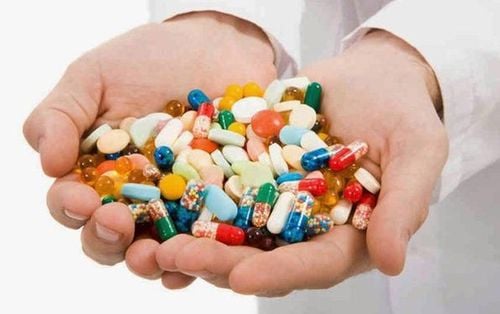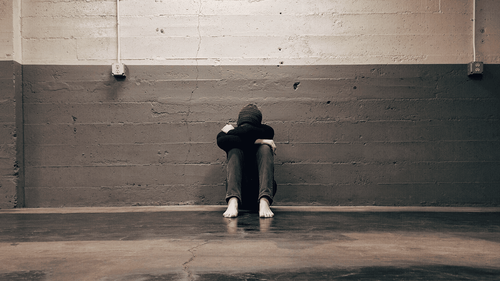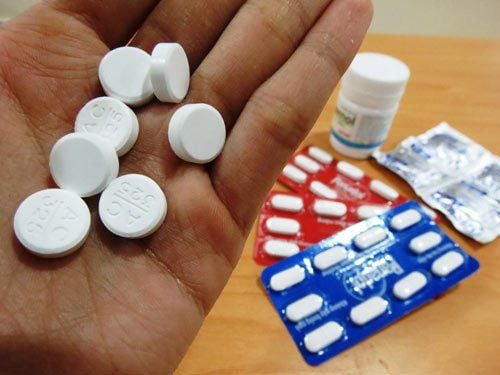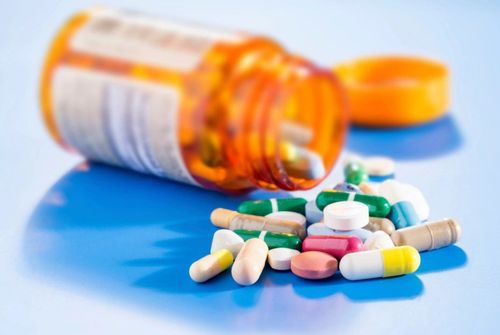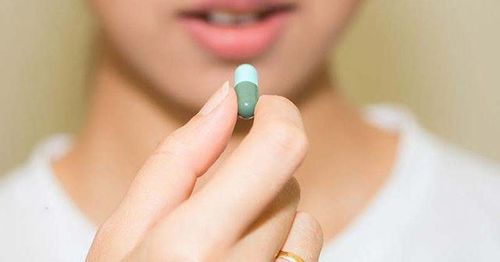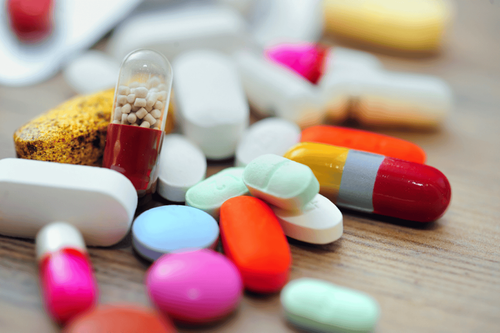This is an automatically translated article.
Caffeine is an active ingredient in many foods and is also an ingredient in many pain relievers. Caffeine interacts to varying degrees with many drugs, so patients need to be very careful when using it.1. What is caffeine?
Caffeine is a chemical found in coffee, tea, cola and other products such as soft drinks, energy drinks, etc. Caffeine in food is commonly used to improve mental alertness. In the pharmaceutical field, caffeine is often combined with other analgesics (such as aspirin, paracetamol) or ergotamine to increase the effectiveness of migraine relief, common headache, postoperative headache,...
Caffeine It works by stimulating the central nervous system, heart, muscles, and blood pressure control center. Caffeine can increase blood pressure and be a diuretic, but not everyone who uses caffeine will experience this phenomenon.
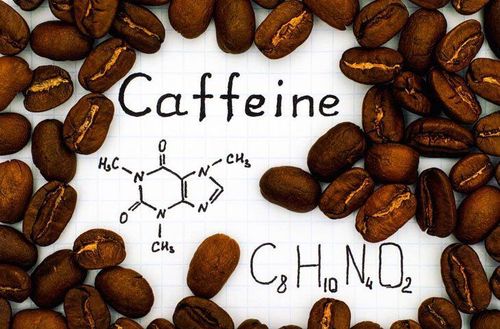
Caffeine là một chất giúp kích thích, tạo hứng phấn cho thần kinh
2. Interactions Between Caffeine and Drugs
2.1. Interactions Between Caffeine and Ephedrine
This is an interaction that requires special attention, both caffeine and Ephedrine are CNS stimulants. Taking caffeine pills during treatment with Ephedrine can cause too much stimulation, increasing your risk of side effects, sometimes heart problems. In susceptible patients, even low doses of ephedrine with caffeine can cause insomnia, anxiety, and confusion.
2.2. Caffeine and Adenosine Interactions
Adenosine is used to treat arrhythmias. Certain types of adenosine are also used in stress testing, where caffeine may decrease the effectiveness of adenosine. Therefore, it is necessary to stop taking medications and using caffeine-containing products at least 24 hours before performing cardiac stress tests.
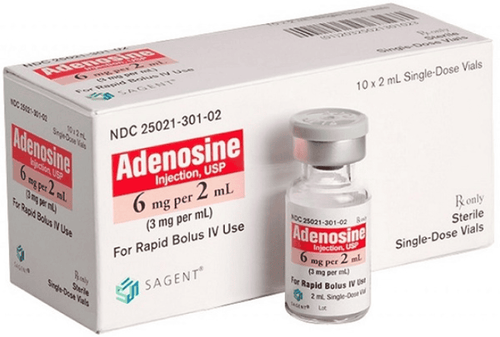
Caffeine có thể làm giảm hiệu quả của Adenosin
2.3. Interaction with drugs that reduce the rate of caffeine elimination from the body
The body will break down Caffeine to remove the drug from the body. However, some drugs used at the same time as caffeine can prevent this process, increasing the risk of having caffeine's effects such as headache, restlessness, nausea, increased heart rate,...
Analogue drugs Interactions with caffeine to reduce the rate of caffeine excretion include:
Quinolone antibiotics such as Ciprofloxacin, Norfloxacin, Sparfloxacin, trovafloxacin, grepafloxacin,... Gastric drugs Cimetidine Drugs to treat alcohol dependence Disulfiram Estrogenic drugs such as ethinyl estradiol , estradiol,... Fluvoxamine for the treatment of mental disorders
2.4. Interactions between caffeine and drugs that reduce the rate of elimination of that drug
Caffeine can slow down the elimination of some drugs, thereby increasing the effects and side effects of that drug. Some drugs that interact in this form with caffeine are:
Antipsychotic drug Clozapine Amyotrophic sclerosis drug Riluzole Blood pressure medicine Verapamil Asthma and chronic obstructive pulmonary disease Theophyllin
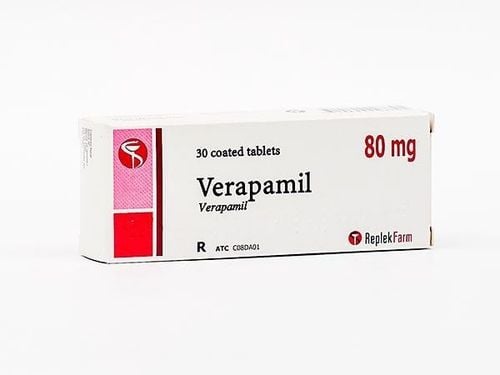
Thuốc Verapamil có thể bị giảm tác dụng khi uống cùng với caffein
2.5. Interactions between caffeine and drugs that accelerate the elimination of that drug
After the process of absorption, distribution, metabolism, the body will have a natural mechanism to remove Lithium drug from the body. Caffeine can speed up Lithium mining. If you take caffeine and lithium pills, stop taking caffeine products slowly. Stopping caffeine too quickly can increase the side effects of lithium.
2.6. Interactions between caffeine and psychostimulants
Caffeine can stimulate the body, some other drugs also have the same effect. When taking these drugs together with caffeine can experience serious side effects such as tachycardia, increased blood pressure, nervousness,...
Drugs that interact with caffeine include:
Medications for depression (MAOIs) such as Phenelzine, Tranylcypromine,... Vasoconstrictors to help decongest the nose Phenylpropanolamine Diethylpropion, Epinephrine, Phentermine, Pseudoephedrine,...
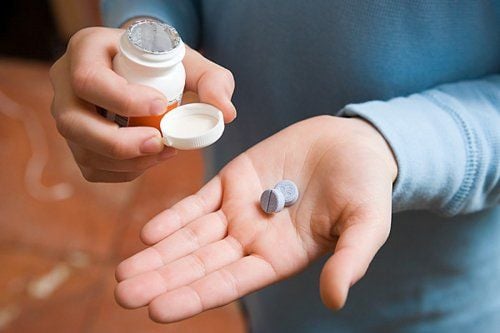
Caffeine khi kết hợp với thuốc điều trị trầm cảm có thể gây ra tương tác
2.7. Interactions between caffeine and drugs that slow blood clotting
Caffeine can slow blood clotting. Taking caffeine and medications that slow blood clotting can increase your risk of bruising and bleeding. Some drugs that slow blood clotting include: aspirin, clopidogrel, diclofenac, ibuprofen, naproxen, dalteparin, enoxaparin, heparin, warfarin,...
2.8. Interactions Between Caffeine and Pentobarbital
Drinking caffeine and the drug Pentobarbital may reduce the sedative effect of Pentobarbital. Caffeine is an active ingredient in many foods and is also an ingredient in many pain relievers. However, caffeine does interact with many medications. Therefore, to ensure safety, during the use of the drug, the patient should strictly follow the instructions of the doctor, in case of any abnormal signs, the patient should soon go to the medical center to examination and treatment.
Please dial HOTLINE for more information or register for an appointment HERE. Download MyVinmec app to make appointments faster and to manage your bookings easily.
References: webmd.com, ncbi.nlm.nih.gov, drugs.com




